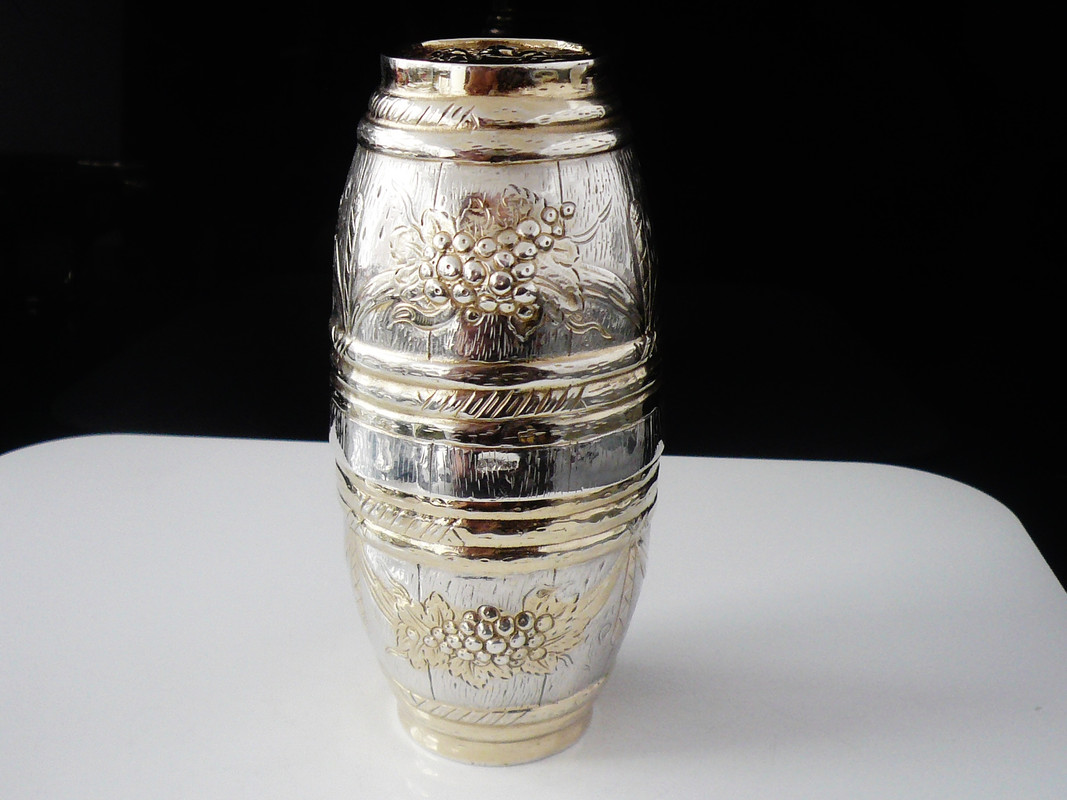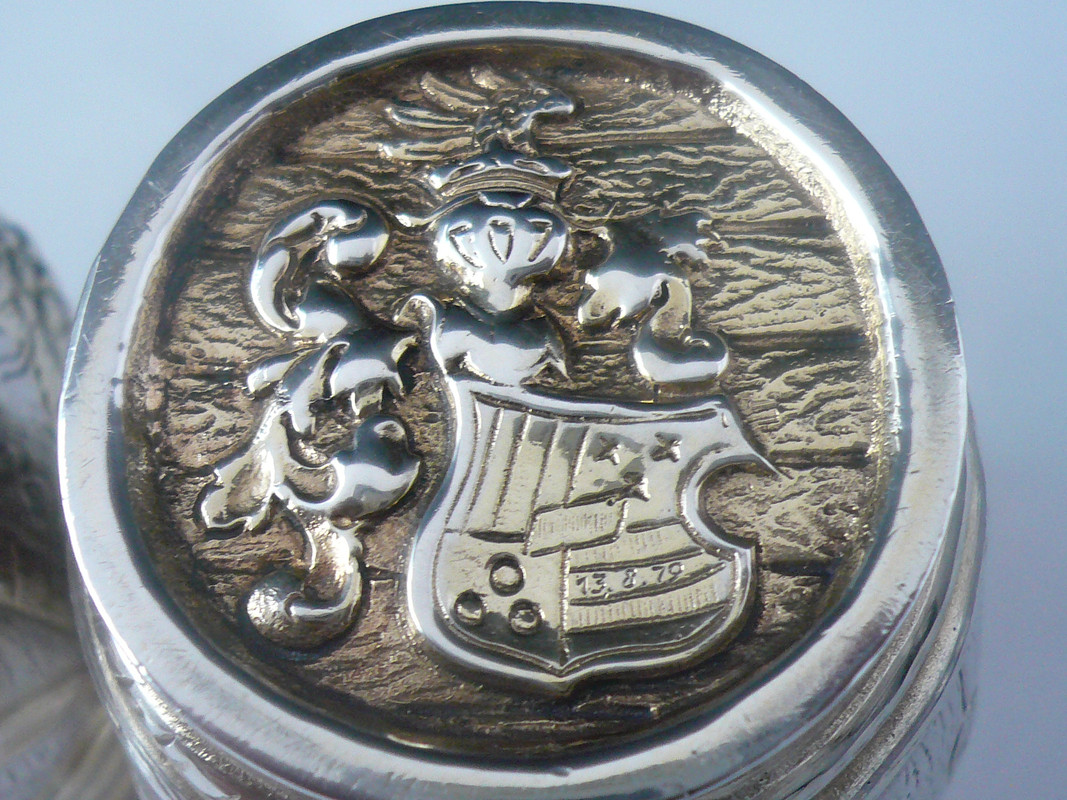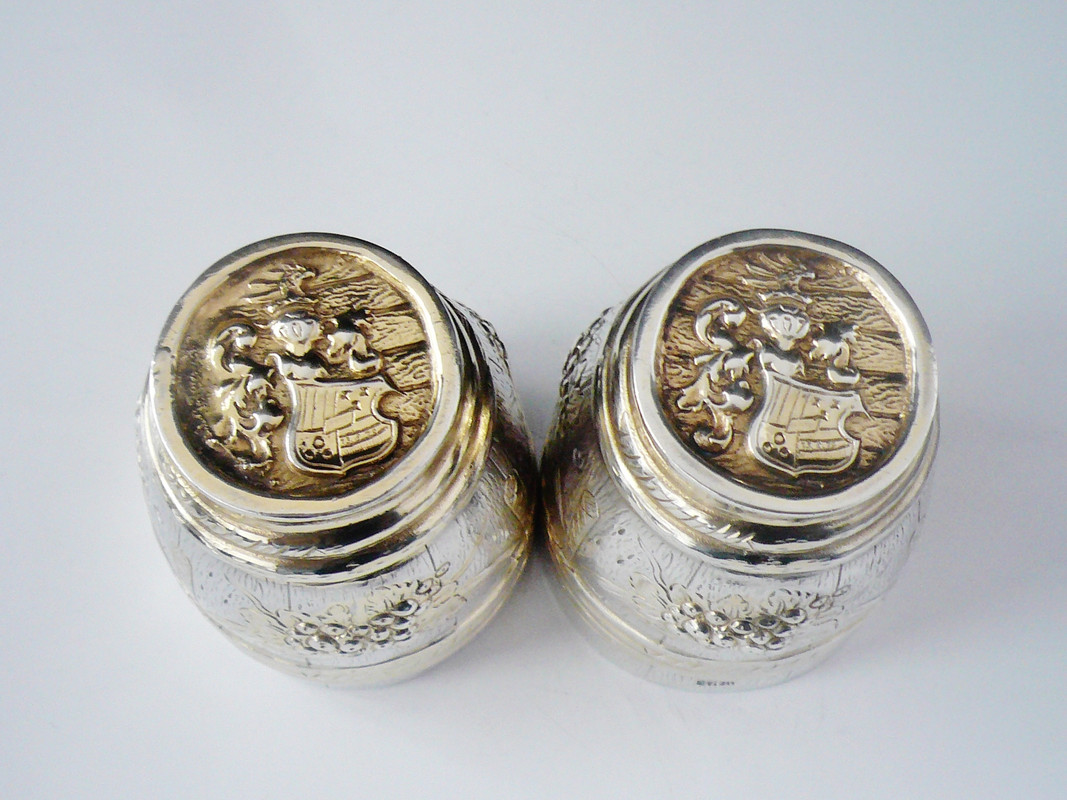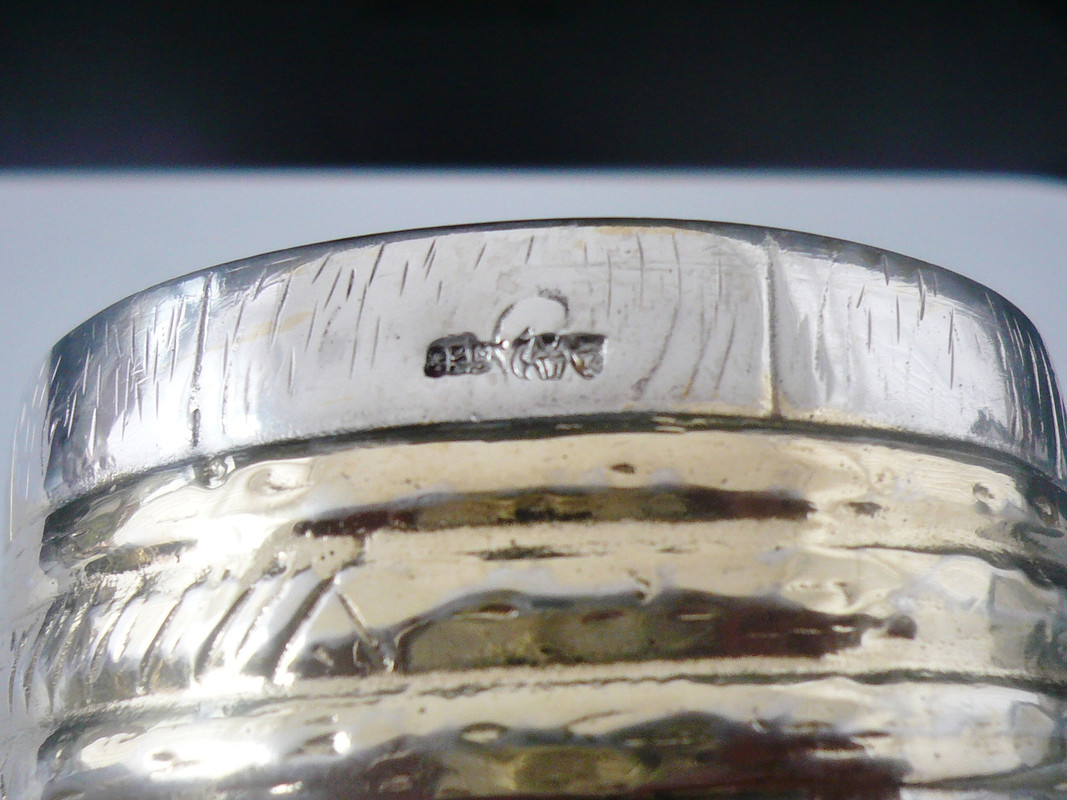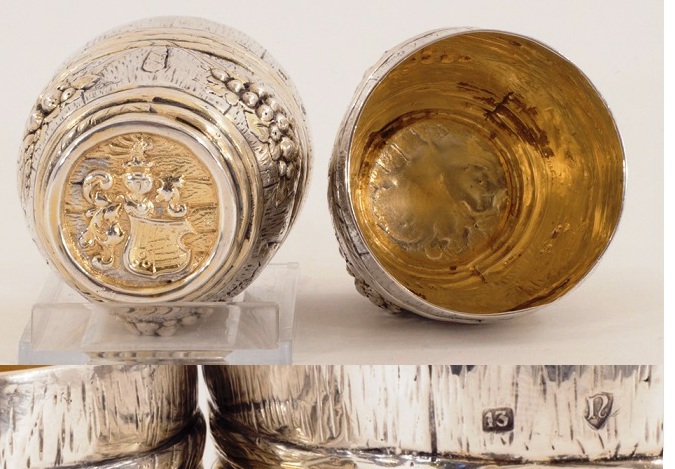I wonder if anyone can assist with these pair of German silver beakers, firstly they are 835 grade, crescent moon and crown can be made out but the last part of the hallmark I can not determine, its not stamped well so unsure if anyone can determine from the image.
Also the bases, these would appear to possibly be some sort of coat of arms? if so does any one know what? 13.8.79 marked on both bases which I am sure will be 1879.
Would there be a particular reason why they fit together like this?
Very weighty as the pair weigh in at 298g and stand 74mm tall each.
Any help on some or all of my queries would be appreciated.
Regards,
Colin
